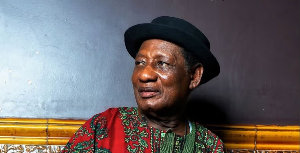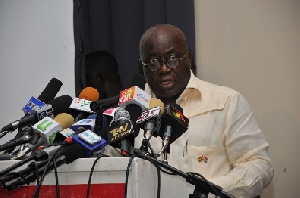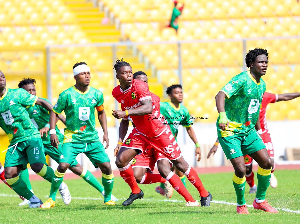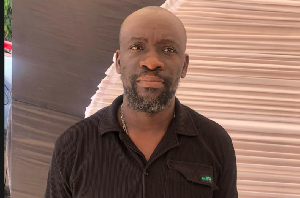Speech Delivered by Nana Addo Dankwa Akufo-Addo, NPP 2012 Presidential Candidate, at the book launch of “Odd Customs, Stereotypes and Prejudices”, written by Archbishop Emeritus Peter Kwasi Sarpong, at the Coconut Groove Hotel, Accra, on 13th July, 2013
Chairperson, my good friend of long standing, Ralph Nwosu, Your Grace, Members of the Clergy, Deputy Minister, distinguished guests, ladies and gentlemen,
I am doubly privileged to be amongst you today. I am here, firstly, to stand in, at his request, for one of the outstanding political leaders of modern Africa, the two-term President of the Republic, His Excellency John Agyekum Kufuor, who, unfortunately, could not be with you here. He has asked me to convey his apologies and also to wish God’s blessing and success on the occasion. Filling his shoes, literally and figuratively, cannot be easy for my modest self, and I am sure I can count on your generosity in tolerating any deficiencies that this brief intervention of mine will reveal.
Secondly, I am further privileged to be part of this occasion which will witness the launching of a fine polemical work, “Odd Customs, Stereotypes and Prejudices”, written by another of the great figures of modern Africa, His Grace Peter Akwasi Sarpong, Archbishop Emeritus of the Catholic Church of Ghana, also known as Kwasi Sarpong Kumankuma.
Priest, scholar, theologian, anthropologist, historian, statesman, patriot, this extraordinary man continues to be one of the marvels of our age, and in the book we are about to launch, he has given us again the benefit of his erudition and scholarship.
Never one to flinch from confronting controversy in any guise or form, his purpose in this book is to revisit some of our cultural practices, attitudes and stereotypes that have gained considerable notoriety and disapproval, better to understand them in order to propose more effective solutions to their treatment. He isolates female circumcision, widowhood rites, witchcraft and magical beliefs, North-South polarization, and stereotypes about Northerners and the Akan factor, child labour in the cocoa industry, multiple marriages, funeral rites and libation among others. His discussion of these subjects and the startling conclusions he arrives at make for fascinating reading.
Characteristically independent of mind, the Archbishop challenges many of the accepted solutions to these issues and much of the conventional wisdom in their analysis. And all through, there are three fundamental elements that explain his world view.
Firstly, his unequivocal commitment to the Ghana project – the passionate refusal to accept any intractable divisions amongst us, asserting time and again our essential oneness and common humanity. He rejects out of hand the notion of a North-South polarisation, insisting that we are all first and foremost Ghanaians, which should be the guiding principle of statecraft. Divisive notions like North and South retard, rather than advance the realisation of the Ghanaian project.
Secondly, his profound humanism. You cannot propose solutions to the moral and cultural problems of any given people unless you have an innate understanding, respect and love for them. This love of humanity pervades the entire work. It allows him to refuse to accept that Rattray, a British commentator, can have a greater understanding and authority of exposition on maters Asante than he, a highly respected priest and a fully paid up member of the Asante people.
Thirdly, and most importantly, the transcendental commitment to the validity of Jesus Christ’s Divine Mission on earth, as revealed in the Gospels and New Testament. It is that deep attachment that infuses all his conclusions and proposals for the forward movement of our society in confronting the difficult issues he has isolated in the wide ranging discussion of the book.
It is astonishing that this great man can, at the ripe age of eighty, after such a rich life, continue to make such a wonderful contribution, albeit in my view all too brief in this short work, to the public discourse of our nation. Perhaps it was not by accident that he reminds us that the Apostle, St John, the only one amongst the Apostles who escaped martyrdom and grew to an old age on the island of Patmos, was the one who gave us in that old age his Gospel, three Letters and the Book of Revelation in the Bible. We can only hope that the Good Lord will continue to preserve Akwasi Sarpong for us to allow us to continue to draw inspiration from this great mind, this great spirit, this great humanist, this exceptional man of God.
Archbishop, thank you for “Odd Customs, Stereotypes and Prejudices”, which I commend wholeheartedly to all Ghanaians, whatever their ethnic, political or religious colouring. It is compulsive reading.
General News of Sunday, 14 July 2013
Source: NPP Communications Directorate
Akufo-Addo's speech at the book launch of Odd Customs, Stereotypes and Prejudices
Entertainment












